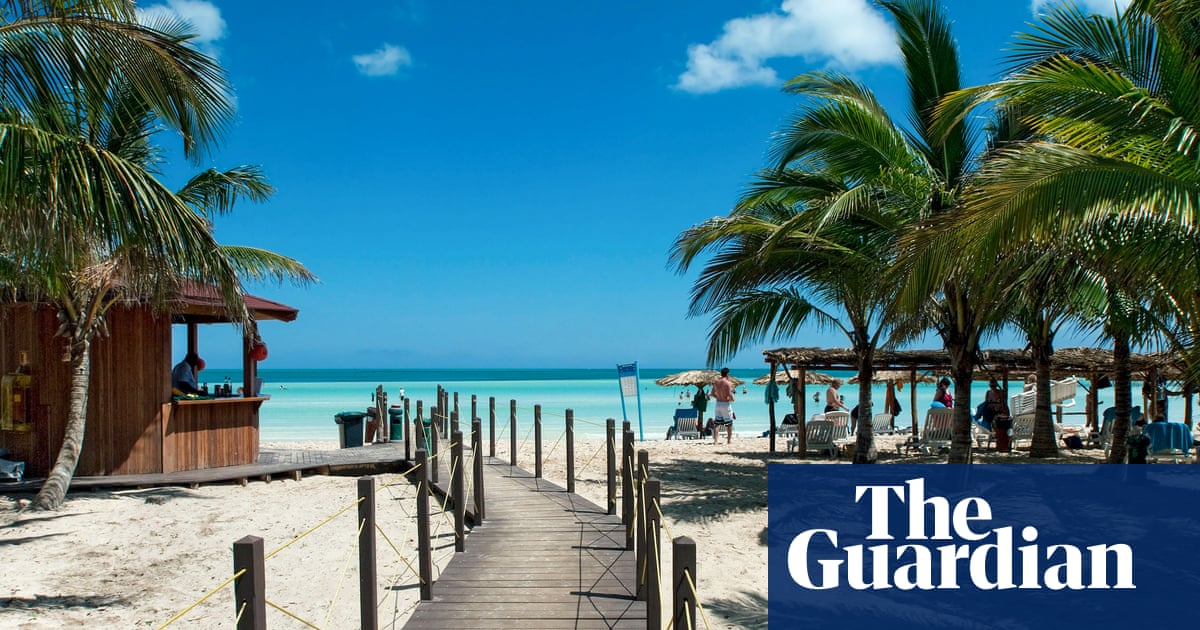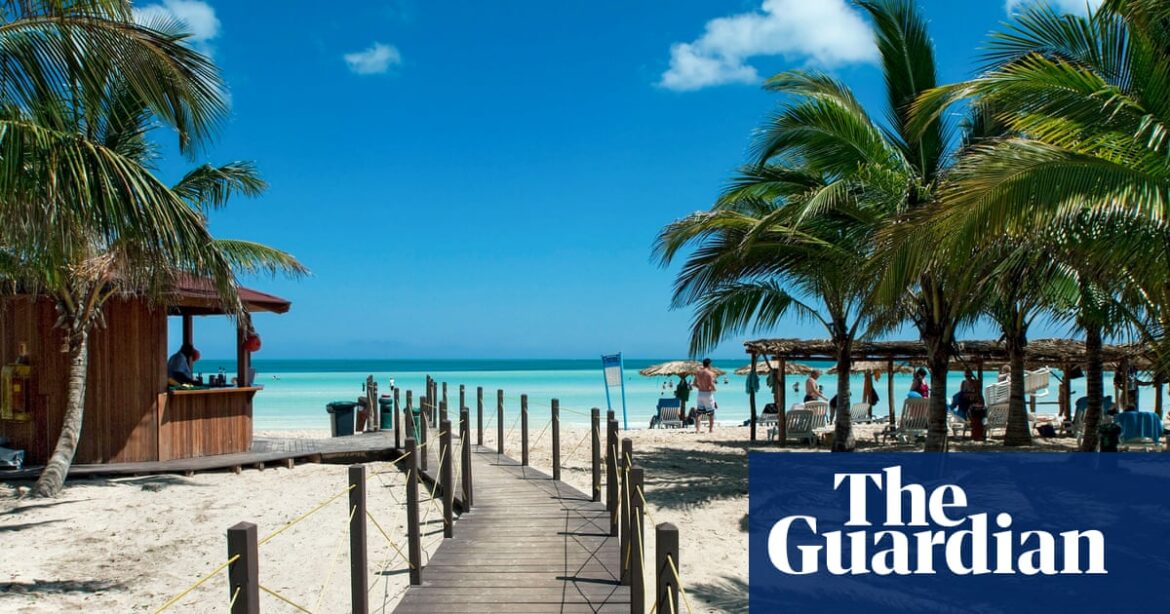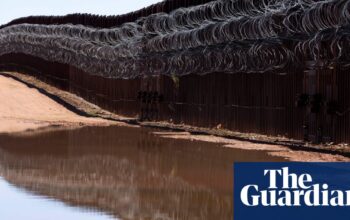
Long before it became one of Cuba’s most popular tourist destinations in the 1990s, the small island of Cayo Coco, with its pristine beaches and powdery white sands, attracted a different kind of clientele.
Inspired by its unspoiled beauty, and his observations of shack-dwelling fishermen scratching out a meager living, Ernest Hemingway set scenes from two of his most famous books there, including the 1952 classic The Old Man and the Sea.
Then came the giant all-inclusive mega-resort hotels that have proliferated in recent decades along the island’s northern coast, and brought in millions of desperately needed dollars for a largely destitute Cuban government.
Now, there’s a bitterly contested multimillion-dollar lawsuit that has implications for the descendants of dozens of Cuban exiles in the US who have been fighting for decades for compensation for land and property seized following Fidel Castro’s 1959 communist revolution.
Mario Echeverría, head of a Cuban American family in Miami that says it owned Cayo Coco, and saw it stolen from them in Castro’s aggressive land reforms, won a $30m verdict this month from the travel giant Expedia after a two-week trial. The jury said Expedia, and subsidiaries Orbitz and hotels.com, illegally profited from promoting and selling vacation packages at hotels there.
The rare lawsuit was one of the first brought under Title III of the 1996 Cuban Liberty and Democratic Solidarity Act, also known as the Helms-Burton Act. The act was designed to finally open a legal pathway for such compensation claims, but was suspended by successive presidents until Donald Trump made the decision to activate it in 2019.
The intention was to deter US and international companies from investing in Cuba by exposing them to potentially huge financial penalties for conducting business there.
For Echeverría, who reminisced about his grandmother tending the beachfront at Cayo Coco in a moving Spanish-language interview with UniVista TV earlier this year, the verdict is not the end of the story.
He and his family may never see a penny after Federico Moreno, the district court judge overseeing the case, paused the award and set a further hearing for August seeking “specific evidence” that the family itself legally acquired the land on Cuba’s independence from Spain in 1898.
The only other previously adjudicated Helms-Burton penalty, a $439m illegal tourism ruling in 2022 against four major cruise lines operating from Havana, was overturned last year. An appeals court said a claim by descendants of the original dock owners was essentially out of time.
A handful of other cases, meanwhile, have stalled – including one by the oil giant Exxon Mobil that claims various Cuban state corporations are profiting from its confiscated land.
But those at the forefront of the fight for justice say the Expedia case in particular brings hope to scores of others pursuing compensation for property they insist was illegally seized.
“There are 45 other suits that are making their way through the courts, there may be more new ones after this verdict also,” said Nicolás Gutiérrez, president of the National Association of Sugar Mill Owners of Cuba.
Gutiérrez is a Miami-based consultant who has worked with hundreds of dispossessed exiles and their families, in addition to pursuing amends for his own family’s lost houses, farmland and mills.
“We are hopeful that this is just the beginning. We waited 23 years, from 1996 to 2019, to have the key provisions of Title III be put into effect by President Trump, and now there’s new generations of families in these cases I’m working with,” he said, adding:
“The old guys back then are gone, but in many cases their kids have continued with their crusade. Some have given up, some have been sort of reactivated along the way, and it’s not only justice for the families, it’s like a historic and moral commitment. We sacrificed and built up prosperity in Cuba that was taken for no good reason.”
Gutiérrez also believes that desperate conditions on the island could hasten the fight.
“They never recovered from the pandemic with tourism. The sugar, nickel and rum industries, and tobacco to a lesser extent, have been run into the ground. Remittances and trips are going to be further cut by the Trump administration, and that’s really what they’re relying on now,” he said.
“They don’t even have electricity for more than a couple hours a day.
“Someday, relatively soon, there will be a big change, and if a future Cuba wants to attract the serious level of investment it will need to dig itself out of the hole that this totalitarian nightmare has dug over the last 66 years, what better way to inspire confidence than to recognize the victims of the illegal confiscations?”
Analysts of Cuban politics say the government is taking notice of the Helms-Burton actions. These analysts are also looking into the ramifications of Trump’s existing and planned crackdowns designed to increase financial pressure on the communist regime.
“There are people looking at the impact it’s having overall in the investment scenario in the island, and apparently it’s having some chilling effect,” said Sebastian Arcos, director of Florida International University’s Cuban Research Institute.
“The most important chilling effect is the fact that the Cuban economy is going nowhere, and everybody knows it.
“The government stole properties from many thousands of Cubans, and what we’re seeing now is a systematic attempt of many of the people who inherited these claims from their families not to try to recover, because it’s impossible to recover anything as long as the Cuban regime is there, but at least to punish the regime financially for doing what they did.”
It’s unclear if Echeverría’s family will become the first to actually receive compensation, but with stretches of Cayo Coco’s northern coastline now consumed by the concrete of almost a dozen super-resorts offering more than 5,000 hotel rooms, they accept the land will not be returned.
Their attorney, Andrés Rivero, said in a statement: “This is a major victory not only for our client, but also for the broader community of Cuban Americans whose property was wrongfully taken and has been exploited by US companies in partnership with the Cuban communist dictatorship.
“We are proud to have played a role in securing justice under a law that had never before been tested before a jury.”
Expedia did not reply to specific questions. A spokesperson said in a statement to the Guardian: “We are disappointed in the jury’s verdict, which we do not believe was supported by the law or evidence. We believe the court was correct to decline immediate entry of judgment and look forward to the court’s consideration of the legal sufficiency of the evidence presented to the jury.”
Source: theguardian.com



